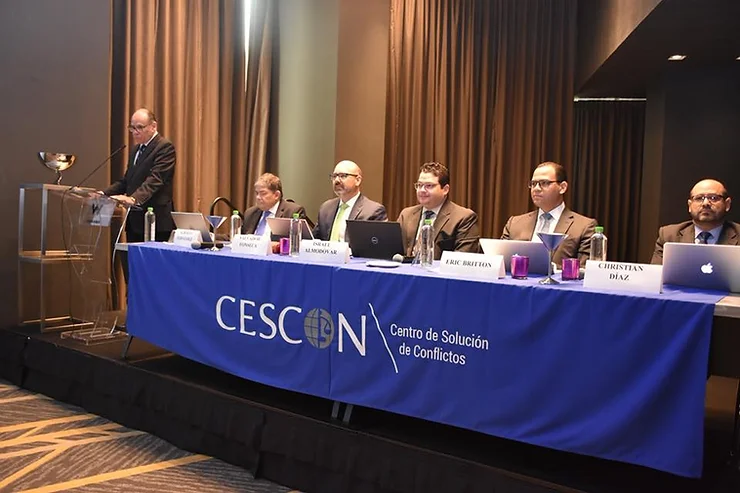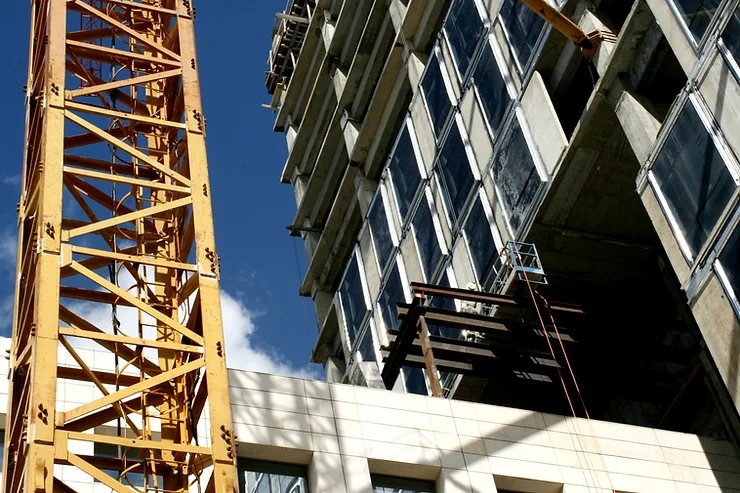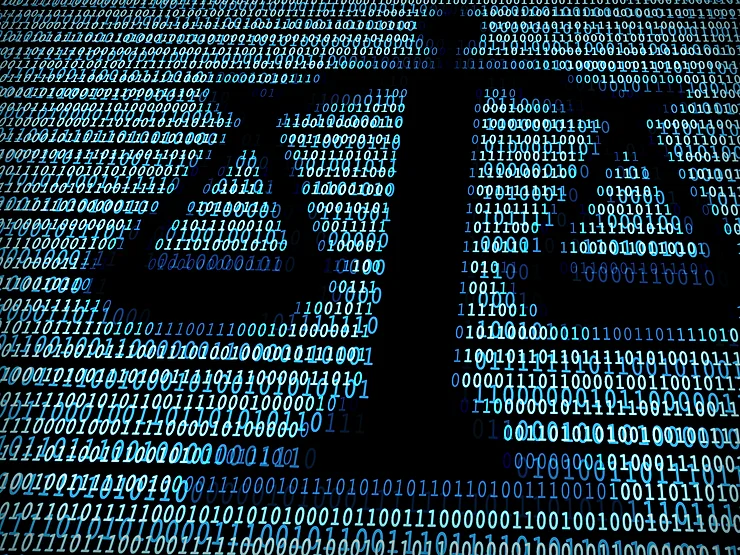
Índice de contenido:
Introduction
Prior to the enactment of the Decree Law 5, 1999, the arbitration in the Republic of Panama was immersed in the procedural legislation, taking the judges an interference and near-absolute domination over the arbitral process.
So, for those days, our reality procedural arbitration was governed by the extinct items 1412 to 1445 of the Judicial Code, in force until the enactment of the Decree Law 5, 1999, being given to the Judge in control, efficiency and practically the total administration of the arbitral process, being a clear example of this the article 1421 of the Code of Judicial in which it is stated that “When in connection with a contract stating in public or private document agreed upon by the contracting parties to submit to arbitration the disputes that arise between them and could not agree on how to proceed to enforce the agreement, either party may occur to the Court you will need to know of the matter, as if it ventilare by the court, to intervene for the purpose of giving effect to the arbitration agreement.”
Therefore, this initial part of arbitration, consisting in ordered the parties to comply with the commitment agreed, was invested in such rituals in the proceedings, which included, among others: (1) the recognition of the arbitration agreement by the signatories, if this constare in a private document; (2) the transfer of the application to the counterparty; (3) a court decision on the establishment or not of the Arbitral Tribunal; (4) judicial determination of the procedure and of the points on which would be the arbitration, if the parties had not established; (5) challenge of the decision of a court by appeal.
In the same sense, he gave the court the power to fill, to your wise judgment, the gaps we find in solving the problems and difficulties that arise in the dispute arbitration, to face the court of law, to the silence of the parties, the appointments of arbitrators, who could be challenged on the same grounds for removal applicable to the Judges of the Circuit.
Another feature of this fenecida legislation was that the Secretary of the Arbitral Tribunal could be the Clerk of the State Jurisdiction where the person is venting the arbitration, who had no other option than to accept the position, to be obliged to do so, and whose swearing-in ceremony was not necessary, because it would apply the same as any paid for his judicial office.
In turn, in case of absence of the proceedings in the arbitration clause, it would be applicable to the oral proceedings referred to in the Judicial Code, being the award susceptible of annulment process, using the route summary, because of transgression; as well as the extraordinary remedy of cassation referred to the Judicial Code; archivándose the arbitration proceeding, after the conclusion of the arbitration, in a Circuit Court, if not without request logging.
This x-ray historic shows that, up to that time, the autonomy and independence of the arbitration was practically non-existent, to be subject at all times to the Jurisdiction of the State.
In 1999, paving the way for the new millennium, Panama took an important step in the field of conflict resolution, with the promulgation of the Decree Law 5, separating the regulations in force until that moment, immersed in the Judicial Code, giving the arbitration, thereafter, self-regulation, and thus was born the regime of conciliation, arbitration and mediation.
The new life of arbitration, from the Decree Law 5, it led to a period of change and learning up until that time known as conflict resolution, at which time the guild is essentially and the bodies of the administration of justice, were determined to understand a new form of litigation, away from the Judicial Code, which was difficult to peel off.
There is No doubt that the change originated from the Decree Law 5, 1999, resulted in a conflict and friction of powers between the traditional organ of dispute resolution -the Judicial branch - the administration of justice and arbitration-fight in which the judiciary was reluctant to recognize powers to individuals to administer justice in matters as sensitive as what are the issues relating to jurisdiction, the competition and the keeper of the fundamental guarantees of the individuals.
Such was the reluctance to recognize the autonomy of arbitration, the Plenum of the Supreme Court of Justice, came to declare unconstitutional the determination of the Arbitral Tribunal on its own jurisdiction, that is to say, failing to acknowledge fully the principle of Kompetenz - Kompetenz, as well as acknowledged and resolved in the background of a plural number of shelters of constitutional guarantees against arbitral decisions, under the previous conception, referred to in the Judicial Code prior to the Decree Law 5, 1999, which equated the referees, judges; recognizing, subsequently, that the arbitrators are not public officials, so that their decisions are not susceptible of protection of Constitutional Guarantees.
This friction or struggle of power generated the need to revise our regulations of the constitution in the matter of administration of justice, and it was not until the year 2004, it rose to the Constitutional level, the recognition of the arbitral jurisdiction, and the determination of the competence of arbitration by the Arbitral Tribunal, setting it explicitly in article 202 of the Constitution as follows: “The Judicial branch is constituted by the Supreme Court of Justice, the courts, and the courts established by the Law. The administration of justice may also be exercised by the arbitral jurisdiction as determined by the Law. The arbitral tribunal may hear and decide for themselves about their own competence.”
So, with the encouragement of settling definitely rubbing of powers, to resolve legal loopholes, and provide greater legal certainty to the arbitration, and update it to the new currents, the Act 131 of December 31, 2013, which clarifies important aspects, and creates a harmonious collaboration and coexistence among the judicial arbitration and the ordinary.
There is No doubt that the Decree Law 5, 1999, and the Law 131 of 2013, to be procedural rules, have a special character, it is imperative and of public order, so that, once the parties in a legal business stipulated in the arbitration as a solution of their disputes, the obligation of both to submit the dispute to arbitration, quedándoles forbidden submission to the jurisdiction of the State.
The limits of jurisdiction
Law 131 of 2013 makes clear the scope and effect of substantive of the arbitration clause arbitration, that is, the obligation of the parties to comply with the agreement and enter into the constitution of the arbitral tribunal. Similarly, the Law 131 sets the scope or effect of procedure, which consists in the immediate declination, on the part of the court in favor of the arbitral tribunal, record where it is a question about the controversy on which the parties have agreed to arbitration as a method of solution of the conflict.
So, the Judge or Court before whom it is intended by the exercise of the action, will reject the claim, without further ado, sending, immediately, to the parties to arbitration in the manner that has been agreed upon by them, to be extensible such scope or effect to the administrative bodies that resolve disputes, pursuant to article 17 of the Law in time.
Interestingly, the application of the rule in attention to the stage of the proceedings in the court or administrative authority has knowledge of the existence of an arbitration clause arbitration, as only the procedural action of the parties is to be determined by the time that the Judge is aware of the existence of the arbitration agreement.
We cannot lose sight of the Judicial Code is not required for the reception and admission of the claim, except to the summary process, this is to be present with the evidence that the prosecutor intends to prove and defend your claim, simply with the presentation of the evidence establishing legal standing to act (power of attorney), and attesting to the existence, validity, and representation of legal persons that are part of the process.
Therefore, before the filing of a claim that complies with the requirements of the Judicial Code, the Judge shall be deemed to be competent to resolve such dispute, shall accept it and give you your course, remained competent until both have knowledge of the existence of an arbitration clause, which can occur in response to a demand, if it is advised by the defendant, or a stage of the proceedings so later as the admission of the evidence, or practice being introduced in the development of a test report, judicial inspection, diligence exhibitoria or expert), or later still, at the time of assess the evidence to issue the judgment of rigor, or, to neglect, we are already in a second instance, or in the development of an extraordinary remedy of cassation.
Regardless of the stage of the proceeding in which the Judge is aware of the existence of the arbitration agreement, the important thing will be that, immediately has such knowledge, decline its jurisdiction and to submit to the arbitral jurisdiction, taking all legal proceedings ahead of the sanction of absolute nullity.
And is that, we cannot lose sight that our Constitution enshrines the arbitration as a jurisdiction, in which the arbitral tribunal to decide on its own jurisdiction, so that, before the existence of an arbitration clause arbitration, the ordinary courts would have no jurisdiction to resolve the dispute.
In the same sense, our Judicial Code enshrines the different jurisdiction as a ground for annulment is common to the whole process, which is absolute and can be claimed by any of the parties as an incident within the same process or through an appeal review, and the Judge, at any time, declare, ex officio, at the time the note.
For this reason, even when none of the parties has been advised of the existence of the arbitration clause arbitration, such an omission may not be interpreted as an extension of the competition, every time the arbitration is a jurisdiction within which is determined by its own competence.
While it is true that they can extend the competition all the people that are working days to appear in processes by itself, pursuant to article 245 of the Judicial Code, you can not lose sight of that extension is expressed when in the agreement or act to further the parties designate clearly the Court to which it is subjected, with so privately to the jurisdiction of the Court chosen by the parties, as defined in article 248 of the same legal body, being a clear example of this is the arbitration clause arbitration which again, do not set only the competition, but, more importantly, the jurisdiction bent to resolve the conflict.
For this reason, should not be understood that by the mere fact that the parties have not invoked the existence of the arbitration clause arbitration in the ordinary jurisdiction, is reason enough to consider that it has been given an “extended” to annul the arbitral jurisdiction, since this would be as much as attributing to him, “in fact”, a nullity of the arbitration clause arbitration by the behavior of process from the parties, which would be a lack of awareness of the effect substantive and procedural provisions in the Act 131 of 2013 and article 202 of the Constitution.
Thus, the parties have agreed in the solution of their disputes before the arbitral jurisdiction will only be able to get rid of it in response to the same freedom of disposition with which celebrated the agreement that binds you to arbitration, that is, without giving effect to such agreement, by using a new mutual agreement to cancel the arbitration agreement, returning to the ordinary justice, the jurisdiction to resolve the dispute.
In this regard, interestingly, the provisions of the now defunct article 1414 of the Judicial Code, is repealed by the Decree Law 5, 1999, in which, during its lifetime, stated expressly that “by common agreement the parties to desist in writing of the arbitration, before the start of the process,” standard, which, again, is repealed, but its foundation remains current through the freedom of provision of the parties, on which is held the arbitration.
Precautionary measures and Orders Preliminary
Law 131 of 2013, it is clear by providing that it is not incompatible with the existence of an arbitration agreement, nor shall be construed as a waiver of that convention the fact that they ask for and be granted, before or during arbitral process, the adoption of precautionary measures and/or temporary, on the part of courts of justice.
In this sense, it is important to bear in mind that the granting or not of interim measures in arbitration, you are also subject to the mutual agreement of the parties, who may agree to the ban for precautionary measures, in the arbitration agreement.
Thus, it is likely, in the absence of a contrary agreement of the parties, the petition and the granting of precautionary measures to ensure the results of the process, such as the kidnapping and the order of suspension, before, and on the part of Courts of law, having jurisdiction, temporary, to such effect, referring to the precautionary measures once constituted, the Arbitral Tribunal, and must be, the applicant, formalize your demand for arbitration within ten days following the practice or diligence of the injunction, under penalty of being left behind such a measure without effect.
Similarly, the ordinary justice has jurisdiction, temporary, to carry out conservation of evidence, upon filing of claims arbitration, without there being, as in the judicial processes, the requirement of filing a lawsuit, in a specific time.
From a practical sense, it is the concurrence in the ordinary jurisdiction as the most suitable means to achieve the role of the precautionary measures, taking into account the vital importance in our midst, the surprise factor for the success of the measure.
We must not lose sight of the fact that for the granting of an injunction in the jurisdiction where the arbitration is required that is already constituted, the arbitral tribunal, at which time, the counterparty will already have full knowledge of the dispute, and can predict any precautionary measure to which you intend to submit.
It is for this reason that, in order to generate a greater independence of the arbitral jurisdiction, it is necessary to the incorporation of the figure of the emergency arbitrator, as has been introduced in other latitudes, in order that, on the basis of a temporary mandate, to be able to resolve any precautionary measures that are present in the field of arbitration, the previous constitution of the arbitral tribunal.
In addition, the Act 131 of 2013 introduced precautionary measures particulars, namely: (1) maintain or restore the status quo pending the hearing of the dispute; 2) measures are taken to prevent any damage is present or imminent of the arbitral proceedings, or refrain from performing certain acts that are likely to cause such damage or impairment, 3) which provide means for preserving certain goods that enable you to run every award subsequent; or, 4) that will preserve evidence that may be relevant to resolving the dispute.
In like sense, with regard to precautionary measures, the Law 131 of 2013, requires for his decree, that the applicant will succeed in convincing the tribunal that: 1) not to be granted the preliminary injunction, it is likely that there is any damage, do not resarcible properly by using a compensation, which is significantly more serious than could have on the party affected by the measure, in case of being granted; and 2) that there is a reasonable possibility that their demand on the merits of the dispute to thrive. That is to say, it requires a showing of Periculum in mora and the Fumus Boni Iuris.
It is important to bear in mind that the Law 131 of 2013 introduces new orders to the preliminary, which, unlike the precautionary measures referred to in the Law 131, are heard inoida part, and come to constitute a kind of prior notice to the opposing party not to frustrate a further precautionary measure, having such an order with a validity of only up to twenty days from the date on which the arbitral tribunal in the hague issued, and may grant the arbitral tribunal, as a precautionary measure to affirm the preliminary injunction, once the party against whom it is directed the preliminary injunction has been notified and has had an opportunity to exercise their rights.
The above is a clear example of the differences between the precautionary measures being practiced and carried out in the ordinary jurisdiction or arbitral jurisdiction, differences ranging from action allowed, your submission and management, as well as in its execution, the whole time that the ordinary jurisdiction, as recognised by the Law 131 of 2013, practice these measures, on the basis of its rules of procedure, either they surrender to the service of arbitral proceedings that are conducted, or not in the country of their jurisdiction.
Therefore, the ordinary jurisdiction manages and practice the precautionary measures in response to the provisions of the Code of Judicial, regulatory body, for example, in precautionary measures of abduction, does not require the petitioner to demonstrate Periculum in mora or Fumus Boni Iuris, as you only need to allocate sufficient security to ensure any damages in the execution, which, in attention to the condition numerus clausus of the Judicial Code, may only be kidnapping or suspension.
The need to incorporate the figure of the Emergency Arbitrator in the local Regulations
Unlike the international rules of arbitration, as it is the Rules of Arbitration of the International Chamber of Commerce (ICC) rules of arbitration of the Centers of Conciliation local do not contemplate the figure of the Emergency Arbitrator, this being a task arbitration pending to incorporate into our arbitration premises, which would contribute to greater independence and autonomy of arbitration in the granting of precautionary measures prior constitution of the Arbitral Tribunal, without necessarily requires the direct meddling of the ordinary jurisdiction.
This figure, which at its introduction in various regulations for arbitration has not been peaceful, it has come to evolve and become an obvious remedy to the lack of an Arbitral Tribunal to address the need for precautionary measures, as well, with the Rules of Arbitration of the International Chamber of Commerce (ICC), as the Rules of Arbitration of the Chamber of Commerce of Lima, among many others at the global level have incorporated.
The peculiarities of the Emergency Arbitrator lie in the following:
- Your choice does not fall on the parties but on a Centre or Institution of Arbitration, in the care provided by the parties in their arbitration agreement;
- Your competition is temporary, only granted to grant or deny a preliminary injunction;
- Your decision may be issued under an order or award in the applicable regulations;
- The decision is binding and obligatory for the parties;
- The decision is not binding on the Arbitral Tribunal subsequently be formed to resolve the dispute;
- The decision to have a temporary effect, until the establishment of the Arbitral Tribunal;
- The Arbitral Tribunal, once constituted, may decide to maintain, amend or withdraw the injunction issued by the Emergency Arbitrator.
As in the precautionary measures granted by the arbitral Tribunal has already been constituted, the Emergency Arbitrator, may also require the assistance of the ordinary jurisdiction for the execution of the order he issued.
It is important to note that, the incorporation of the Emergency Arbitrator is an alternative to the state courts in the matter of precautionary measures, without which they lose their competence temporary in this matter, and their valuable cooperation and support for the arbitral proceedings.
The collaboration of the State Jurisdiction to the Arbitral Jurisdiction
As a very sensible, indicates the dr. Miriam Salcedo Castro: “Only in a perfect world in which people fulfill their obligations, without the threat of coercive power of the State, could be the arbitration without support.”[1].
And is that, for the existence, recognition, and functionality of the arbitration, the State must recognize and authorize, by means of rigor (Constitution and Law), the existence of the arbitration as a method of dispute resolution and binding and binding on the parties and regulates the form expresses your space court in front of the ordinary justice system, leading to a collaboration in the initiation, development, and execution of the arbitration.
Thus, from the regulation of arbitration in the Judicial Code of Panama, has existed, a collaboration between the two fields of conflict resolution, where, for the proceedings, the arbitrators are not able to practice by yourself, you can request the assistance of the Judge of the place where arbitration takes place, who shall, to that effect, the measures that it deems appropriate.
In the same sense, in the absence of voluntary compliance of the award by the losing party, the winner can have recourse to the ordinary courts for execution.
Currently, the Law 131 of 2013, provides that in the matter interim, both the precautionary measures, such as orders, preliminary, when you require the judicial assistance, the Arbitral Tribunal shall request the competent court of the place where you will run the measure, who will provide the assistance relevant to its execution, without having jurisdiction to interpret the content, nor the scope of the measure or order, who, only to doubt, may seek clarification or accuracy directly to the arbitral tribunal, without that in the ordinary jurisdiction can support resources or oppositions.
In respect of the precautionary measures and drafted orders that are issued by arbitral tribunals with headquarters abroad, their execution within the Republic of Panama will depend on the prior recognition that gives the Fourth Chamber of the General Business of the Supreme Court of Justice, who may only deny such a measure to the existence of any of the grounds referred to in article 43 of the Law 131 of 2013.
Similarly, in regard to the evidence in the arbitration, the courts of justice may attend the arbitration courts in the practice test, taking the ordinary court authority to perform the assistance within the scope of their competence (basically territorial), and in accordance with the rules applicable to that on means of proof, that is to say, the Judicial Code.
Constitutional Control of the Arbitral Award
As is natural, the State has, through its Judiciary, the control of the constitutional guarantees of persons (natural or legal) that are under its sovereignty, being a power that remains within the saved constitutional of the arbitral award.
So, it is clear in the Law 131 of 2013 that the control and the constitutional protection is exercised only through the action for annulment of the arbitral award, whose jurisdiction lies in the Fourth Chamber of the General Business of the Supreme Court of Justice, who shall be resolved by declaring the validity or invalidity of the arbitration award, provided that it is achieved to demonstrate: 1. Which one of the parties in the arbitration agreement was affected by some incapacity, or the said agreement is not valid under the law to which the parties have subjected it or, if nothing is stated, in this regard, under the panamanian law; or 2; Which has not been duly notified of the appointment of an arbitrator or of the arbitration proceedings or was not able, for any other reason, to assert their rights; or 3. The award refers to a dispute not contemplated by the arbitration agreement, or contains decisions that exceed the terms of the arbitration agreement; however, if the provisions of the award relating to matters submitted to arbitration can be separated from those that are not, just these last may be cancelled; or 4. That the appointment of the arbitral tribunal or the arbitration procedure has not been adjusted to the agreement between the parties, unless such agreement was in conflict with a provision of this Law from which the parties cannot derogate, or, failing such agreement, which have not been adjusted to this Law; or 5. That the arbitrators have decided on issues that are not amenable to arbitration; or 6. The international award is contrary to international public order; pursuant to article 67.
It is necessary to bear in mind, that the action for annulment may be brought, both for final awards as well as for partial awards, as is the resolution issued by the Arbitral Tribunal to declare its competence.
With respect to the order of the panamanian public, the Fourth Chamber of the General Business of the Supreme Court of Justice, has made it clear that “the order of the panamanian public would be deemed violated, if the arbitrators within the process had executed an act contrary to the fundamental principles of the general interest of a State, the principles that are enshrined in the Constitution, the Laws and Regulations of our domestic legal system...”[2] considered the case of arbitration in equity “the fundamental rights of the parties in the whole process; that is to say, to be judged by a competent authority and in accordance with the legal arrangements.” [3]
And, in respect of international public policy, the board has recognized and adopted the approaches of the doctor José Luis Siqueros, outlining the following: "The international public policy of any State includes: (i) fundamental principles relating to justice and the moral, which the State wants to protect even when you're not directly involved; (ii) rules to sustain the vital interests of the State in political, social or economic, known as "lois de police" or "rules of public order"; and (iii) the State's duty to respect the obligations against other States and international organizations"[4].
Pointing to the Room that “both the New York Convention of 1958, the Panama Convention 1975 and the Model Law of UNCITRAL (UNCITRAL) adopted the approach that the system of principles and rules that make up the international public order should be the one that corresponds to the State where enforcement is sought, and in this case it is the international public order of the Republic of Panama.”[5]
Enforcement of the Arbitral Award
At the end of the arbitral jurisdiction with the issuance of the arbitral award, and facing a lack of voluntary compliance on the part of the vanquished, the State jurisdiction opens its doors, respecting and recognizing what failed by the Arbitral Tribunal, forcing his execution, through the empire that characterizes him, with the power enough to coerce the failed to comply with the resolutions in the award.
So, once the arbitral jurisdiction with the issuance of an award, if the award rendered within a process national arbitration or an arbitration international but with headquarters in the Republic of Panama, in the absence of voluntary compliance with the losing party may have recourse to the civil courts for the enforcement of the arbitral award, through the established procedure for judicial decisions in a firm, a process to which only you will be able to assert the existence of a process of cancellation, no resolution at this stage it is appealed.
In case of arbitral awards international, whose headquarters has not been the Republic of Panama, these shall be subject to prior recognition by the Fourth Chamber of the General Business of the Supreme Court of Justice, in accordance with the Convention on the Recognition and enforcement of Foreign Arbitral awards, adopted in New York in 1958, the inter-American Convention on International Commercial Arbitration of 1975, or any other treaty on the recognition and enforcement of arbitral awards that have been ratified in Panama, being the only grounds for refusal referred to in article 72 of the Law 131 of 2013, this is:
- At the request of the party against whom it is invoked, when this party proves to the competent court of the country in which you ask for the recognition or execution:
- Which one of the parties in the arbitration agreement was affected by some incapacity, or the said agreement is not valid under the law to which the parties have subjected it, or if nothing has been indicated in this regard, in virtue of the law of the country in which the award has been rendered; or
- That the party against whom it is invoked, the award has not been duly notified of the appointment of an arbitrator or of the arbitration proceedings or was not able, for any other reason, to assert their rights; or
- The award refers to a dispute not contemplated by the arbitration agreement, or contains decisions that exceed the terms of the arbitration agreement; however, if the provisions of the award relating to matters submitted to arbitration can be separated from those that are not, may be given recognition and enforcement to the first; or
- The composition of the arbitral tribunal or the arbitration procedure has not yet adjusted to the agreement concluded between the parties or, in default of such agreement, which have not been adjusted to the law of the country where you made the arbitration; or
- The award is not yet binding on the parties or has been annulled or suspended by a court of the country in which, or under whose Law has been made that award; or
- If the Fourth Chamber of the General Business checks:
- That, according to the panamanian Law, the subject matter of the dispute is not capable of arbitration; or
- That recognition or enforcement of the award would be contrary to the international public order of Panama.
The Fourth Room's Overall Business of the Supreme Court of Justice, to analyze the recognition and enforcement of awards international, has given a restrictive interpretation, trying to encourage the recognition and execution of this, considering it doctrinally known as the “bias in favor of the execution”, as well as the principle of maximum effectiveness, which states that the Courts should apply the treaty under which the award becomes enforceable.[6]
Similarly, the Chamber has been the answer to indicate that the approaches in opposition to the recognition and enforcement of a foreign arbitration decision, must be arguments of this stage of the proceedings, and no defenses that had, in any case arise within an action for annulment of the award in the arbitration.
Conclusion
In summary, from the above, it can be said that the arbitration cannot survive without the acquiescence of the State, which allows it to exist and fulfill its role, and gives you the coercive power to enforce its decisions.
In Panama, it has not been easy getting to the time of evolution of the arbitration in which we find ourselves, but with a good vision of the State, the changes have been made Constitutional and legal steps to reach the harmonious co-existence between the judicial arbitration and the ordinary lives in Panama today, which without doubt will continue to evolve in the interest of administration of justice
[1] Salcedo Castro, Myriam, public order, and arbitration. Ed. University of the Rosary and the Chamber of Commerce of Bogotá, Bogota, Colombia, 2015, p. li.
[2] Judgment of 21 July 2015, the Fourth Chamber of the General Business of the Supreme Court of Justice.
[3] Ibidem
[4] Judgment of 21 July 2015, the Fourth Chamber of the General Business of the Supreme Court of Justice.
[5] Judgment of 9 October 2015, the Fourth Chamber of the Supreme Court of Justice.
[6] Judgment of 9 October 2015, the Fourth Chamber of the Supreme Court of Justice.





